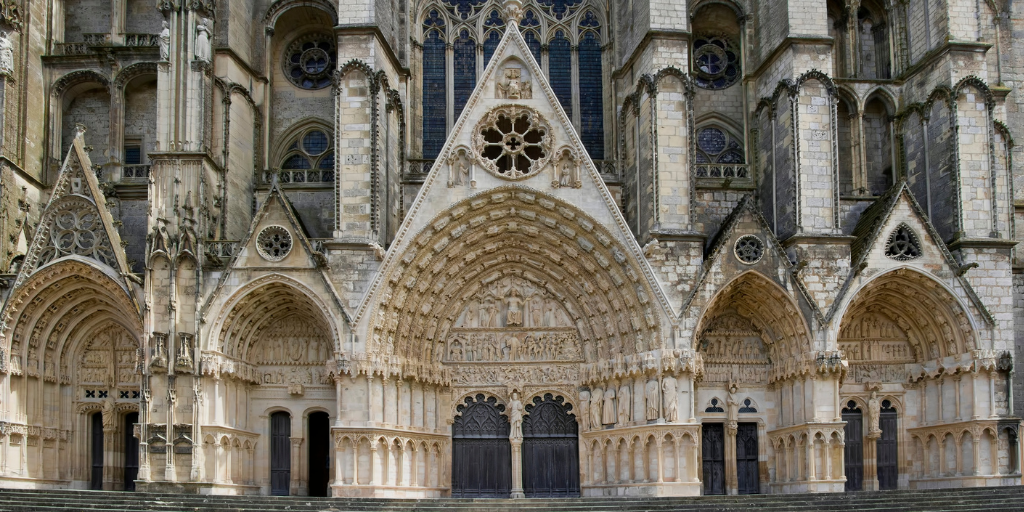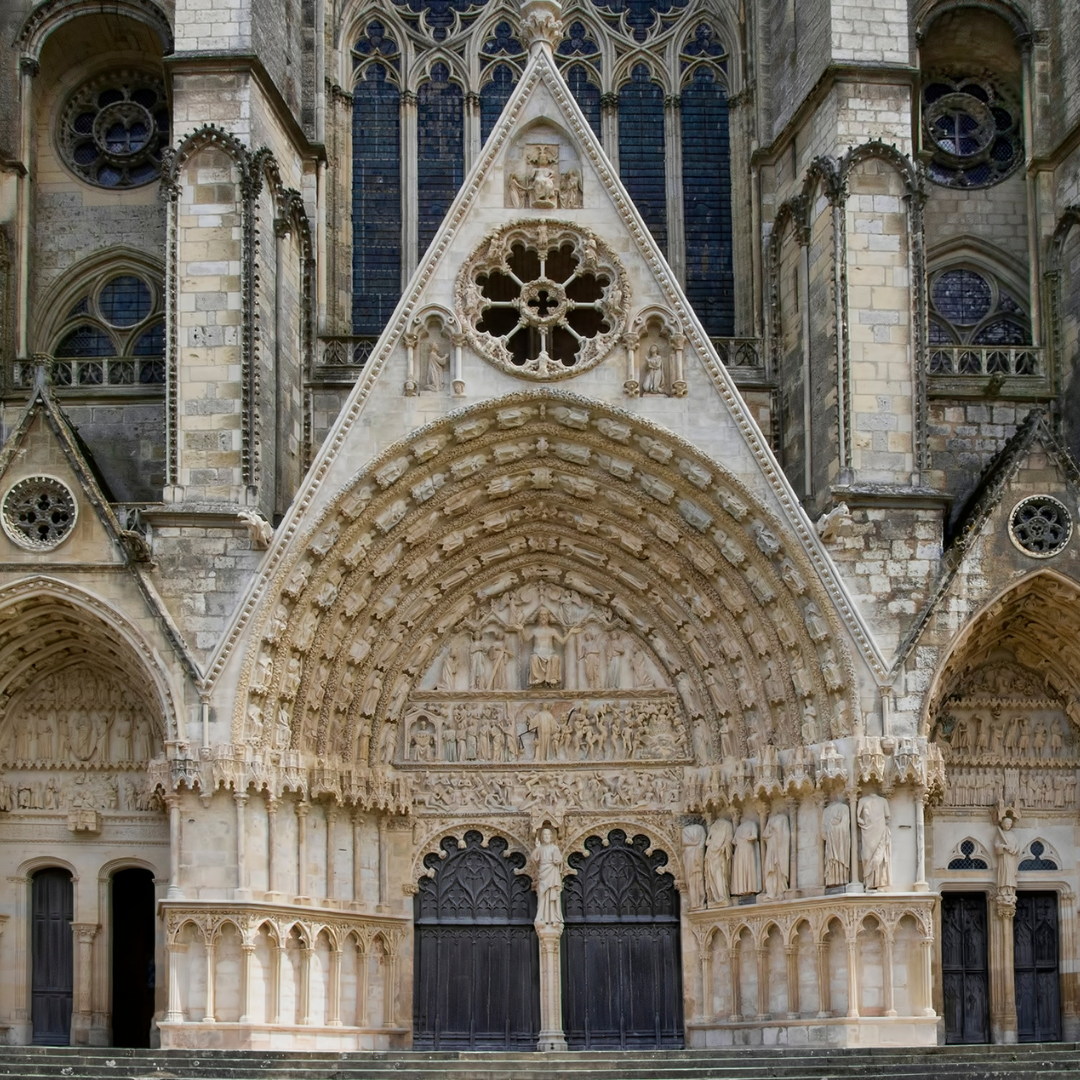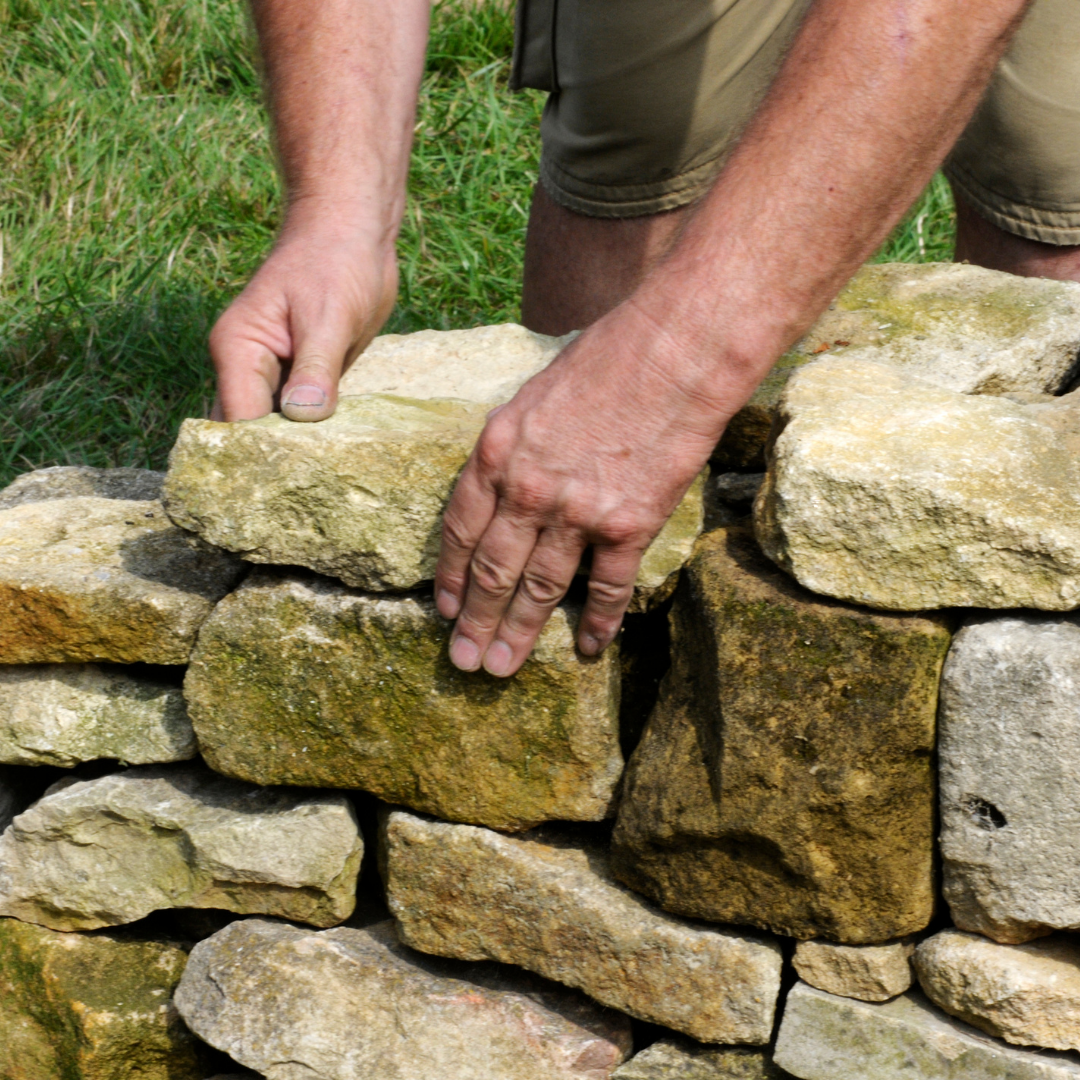
Flávia Ghelardi ponders the attitude we need in our daily life and work to keep our focus on living for eternity.
Flávia Ghelardi writes from Brazil in English and Portuguese. Vá para a versão em português.
The importance of knowing the reason for doing things
I heard a very interesting story about how the same fact can generate different points of view, depending on one's motivation. There were three men working on the construction of a large cathedral. All three were asked the same question, "What are you doing?" The first answered, "I am breaking stone"; the second said, "I am supporting my family"; and the third proclaimed, "I am building a cathedral!"
All three answers are absolutely correct, yet they demonstrate how each of these men view their attitudes, their work. The first one's vision is focused on the immediate, on what he is doing at that moment. This kind of attitude towards life leads the person to be very inconstant, to be influenced by circumstances, to simply "react" to events and not have a posture of action, of doing because he knows what he is doing. He who only sees the moment, loses the notion of the whole, of history; he often feels bored and tends to seek sensations, physical pleasures, to feel happy.
The attitude of the second one already shows a little more sense of responsibility for others, of knowing that his attitude influences other people's lives. He is breaking stones, but with the objective of supporting his family. His vision is a little wider, but he still needs to see the whole, the beauty of human existence, the reason for his own existence. If life is limited to fulfilling one's obligations in order to support oneself, it is very poor (even if full of money) and does not fulfill the longings of the human heart.
The third is the one who has really understood the deep meaning of his existence. He knows that his action here and now, even if it serves to support his family, will echo for all eternity. Cathedrals are monuments that last for centuries, so no matter how monotonous that stone breaking may be, it is necessary to build a spectacular work that will stand for many, many years after the small builder's existence is over.

The real meaning of our existence
As the poet once said: "We are born to the flash of lightning and it still shines when we die, so short is life". That is why it is so necessary to understand what we are doing in this world, to know that while we are here, we have the opportunity to prepare our future life, the one that will never end, the eternal destiny of our soul.
Father Joseph Kentenich, founder of the Schoenstatt Movement, spoke of the sacredness of the moment, that this moment in which we are living will never return, and that is why we need to live it in the best way possible. He also taught about the "faithful and most faithful fulfillment of duty" and "doing the ordinary in an extraordinary way”. All this to show us how important it is to fulfill our daily obligations in an excellent way, because our attitudes here are what determine our quality of life, our fulfillment as a human being, and also the future of our soul when our existence on this earth ends.
Our Lord Jesus Christ spent 30 years of his life in the ordinary life of his family, fulfilling his duties, to set an example of how we should act in our daily lives. In all these years He was already performing His redemptive work, sanctifying family life, showing the importance of the family and the redemptive value of work well done.

The sanctification of daily life
Thus, our sanctification occurs in our daily life, which should be a constant walk toward Heaven. My grandmother Amábile always said that the good we do here, the gestures of love, of donation, the small and big sacrifices, are like "bricks" that we send for the construction of our house in Heaven. The more we do here, the better our home in eternity will be.
To be able to sanctify our day, we need to become aware of the presence of God at our side and for this we need the help of our imagination and our memory. You know that little stop you take to look at your phone to see messages during the day? Take advantage of those moments to say "hello" to God.
This greeting can be through aspirations, which are "arrows" of love that we send to Heaven. They are short and simple phrases that demonstrate our link to the supernatural world. Some examples: "Jesus, I trust in you", "Our Lady, take care of me", "Jesus, I love you and one day I want to be with you in Heaven", "Come Holy Spirit", "Bless me, St. Joseph", and so on. Finally, each person can also create his or her own favorite one or get inspiration from the lives of the saints and the aspirations they used.
As we become more aware of this divine presence, we can better fulfill our duties, fight against our imperfections, and little by little see the meaning of our existence, which is not just "breaking stones", but "building a cathedral". The saint is a living monument that demonstrates all the divine majesty, much more than a cathedral of stones. So, the search and the struggle for our holiness is the greatest cathedral we can build for God.
Você está quebrando pedra ou construindo uma catedral?
A importância de saber o motivo de fazer as coisas
Ouvi uma história muito interessante sobre como um mesmo fato pode gerar diferentes pontos de vista, dependendo da motivação de cada um. Havia três homens que trabalhavam na construção de uma grande catedral. Aos três foi feito a mesma pergunta: “o que você está fazendo?” O primeiro respondeu: “estou quebrando pedra”; o segundo disse: “estou sustentando a minha família” e o terceiro falou: “estou construindo uma catedral!”
As três respostas estão absolutamente corretas, porém demonstram como cada um desses homens enxerga as suas atitudes, o seu trabalho. A visão do primeiro está focada no imediato, no que está fazendo naquele instante. Esse tipo de atitude frente à vida leva a pessoa a ser muito inconstante, a ser influenciada pelas circunstâncias, a simplesmente “reagir” aos acontecimentos e não ter uma postura de ação, de fazer porque sabe o que está fazendo. Aquele que enxerga só o momento, perde a noção do todo, da história; muitas vezes se sente entediado e tende a buscar “sensações”, prazeres físicos, para se sentir feliz.
A postura do segundo já mostra um pouco mais de sentido de responsabilidade pelos outros, de saber que a sua atitude influencia na vida de outras pessoas. Ele está quebrando pedra, porém com o objetivo de sustentar a sua família. A visão é um pouco mais ampla, mas ainda falta enxergar o todo, a beleza da existência humana, o motivo do próprio existir. Se a vida se limitar a cumprir as obrigações para ter o próprio sustento, ela é muito pobre (mesmo se cheia de dinheiro) e não preenche os anseios do coração humano.
O terceiro é aquele que entendeu realmente o profundo sentido de sua existência. Ele sabe que sua ação aqui e agora, mesmo que sirva para sustentar a sua família, vai ecoar por toda eternidade. As catedrais são monumentos que duram séculos, então por mais monótono que seja aquele quebrar pedra, ele é necessário para construir uma obra espetacular que estará de pé por muitos e muitos anos depois que acabar a existência desse pequeno construtor.
O verdadeiro sentido da nossa existência
Já disse o poeta: “ao brilhar de um relâmpago nascemos e ainda brilha seu fulgor quando morremos, tão curto é o viver”. Por isso é tão necessário entender o que estamos fazendo nesse mundo, saber que enquanto estamos aqui, temos a oportunidade de preparar nossa vida futura, aquela que nunca acabará, o destino eterno de nossa alma.
Pe. José Kentenich, fundador do Movimento Apostólico de Schoenstatt, falava da sacralidade do momento, de que esse instante em que estamos vivendo, jamais voltará, por isso precisamos vive-lo da melhor forma possível. Ensinava ainda sobre o “fiel e fidelíssimo cumprimento do dever” e de “fazer o ordinário de forma extraordinária”. Tudo isso para nos mostrar como é importante cumprirmos de maneira excelente as nossas obrigações de cada dia, pois as nossas atitudes aqui é que determinam a nossa qualidade de vida, nossa realização como ser humano e também o futuro da nossa alma quando encerrar nossa existência nesta terra.
Nosso Senhor Jesus Cristo passou 30 anos de sua vida no ordinário de sua família, cumprindo seus deveres, para dar o exemplo de como devemos agir no nosso cotidiano. Nesses anos todos Ele já estava realizando sua obra redentora, santificando a vida familiar, mostrando a importância da família e o valor redentor do trabalho bem feito.
A santificação da vida diária
Assim, a nossa santificação ocorre na nossa vida diária, que deve ser um caminhar constante rumo ao Céu. Minha avó Amábile sempre dizia que o bem que fazemos aqui, os gestos de amor, de doação, os pequenos e grandes sacrifícios, são como “tijolos” que enviamos para a construção da nossa casa no Céu. Quanto mais fizermos aqui, melhor será nossa morada na eternidade.
Para conseguirmos santificar o nosso dia, precisamos nos conscientizar da presença de Deus ao nosso lado e para isso precisamos da ajuda de nossa imaginação e de nossa memória. Sabe aquela paradinha que você dá para olhar as mensagens do WhatsApp durante o dia? Aproveite esses momentos para dizer “oi” pra Deus.
Essa saudação pode ser através de jaculatórias, que são “flechas” de amor que mandamos para o Céu. São frases curtas e simples que demonstram nossa vinculação ao mundo sobrenatural. Alguns exemplos: “Jesus, eu confio em vós!”, “Nossa Senhora cuide de mim!”, “Jesus eu te amo e quero estar um dia contigo no Céu!”, “Vem Espírito Santo!”, “Valei-me São José!” enfim, cada um pode também criar a sua preferida ou pegar inspiração na vida dos santos e nas jaculatórias que eles usavam.
Conforme vamos nos conscientizando dessa presença divina, conseguimos cumprir melhor nossos deveres, lutar contra nossas imperfeições e pouco a pouco enxergar o sentido da nossa existência, que não é apenas “quebrar as pedras”, mas “construir uma catedral”. O santo é um monumento vivo que demonstra toda a majestade divina, muito mais que uma catedral de pedras. Então, a busca e a luta pela nossa santidade é a maior catedral que podemos construir para Deus.
Copyright 2021 Flávia Ghelardi
Images: Canva Pro
About the Author

Flávia Ghelardi
Flávia Ghelardi is the mom of four, a former lawyer already "promoted" to full time mom. Flávia published her first book FORTALECENDO SUA FAMÍLIA and is a member of Schoenstatt´s Apostolic Movement. Flávia loves to speak about motherhood and the important role of women, as desired by God, for our society. She blogs at www.fortalecendosuafamilia.blogspot.com.


.png?width=1806&height=731&name=CatholicMom_hcfm_logo1_pos_871c_2728c%20(002).png)
Comments